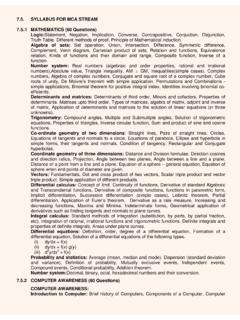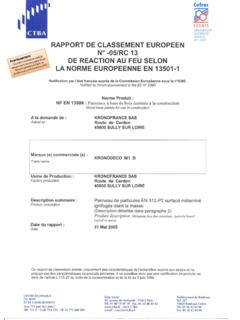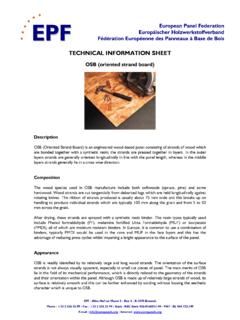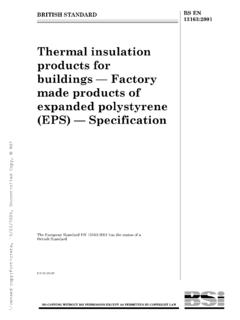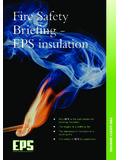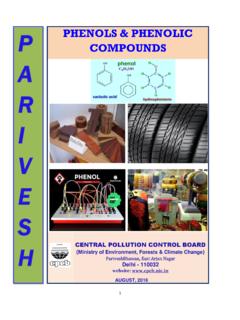Transcription of 7.9 Syllabus for PGAT-2018: PGAT TEST for M. Tech …
1 Syllabus for PGAT-2018: PGAT TEST for M. Tech / M. Arch will be of 2 hours duration containing 90 questions. Out of this 90 questions, 30questions will be common to all branches of PGAT candidates. (a) 20 Engineering Mathematics (b) 10 Analytical and Logical Reasoning. 60 questions will of Branch specialization. For M Pharm it will be 1 hour examination and of 60 questions from the branch alone. M PLAN: Entrance Test: Candidate has to appear PGAT entrance test of 1 hour duration, 60 Multiple Choice Questions. 10 questions will be of Logical Reasoning type, 10 questions will be Arithmetic reasoning and 40 questions will be of basic Architectural concept related. All candidates seeking admission to 1st year Master Degree courses in Engineering/ Technology/ Architecture will have to appear the respective courses of examination suitably choosing the question they want to appear as it will decide the M Tech branch they will be eligible for.
2 (Refer Table-14: Admission to First Year / / M Plan) Candidates seeking admission to course have to appear 60 questions. The Syllabus is as per BPUT B. Pharm. Detailed Syllabi for the PGAT Test is mentioned below, branch wise. ENGINEERING MATHEMATICS (Common Question of 20 nos. for all branches excepting M. Pharm) Ordinary Differential Equations: First order differential equations, separable equations, exact differential equations. Linear differential equations of second and higher order, homogeneous equation with constant co-efficient. Eular Cauchy equations, solution by undeterminated co-efficients, solution by variation of parameters. Linear algebra: matrices, vectors, determinants and linear system of equations, matrices and linear system of equations, matrix eigen value problems, symmetric, skew symmetrics and orthogonal matrices.
3 Fourier series: Fourier series, Expansions functions of any period, even and odd functions, half range expansion. Laplace transformation and its use in solving differential equations. Convolution integral equations. for Architecture( AR) City planning: Evolution of cities; principles of city planning; types of cities & new towns; planning regulations and building bye laws; eco-city concept; sustainable development. Housing: Concept of housing; neighborhood concept; site planning principles; housing typology; Housing standards; housing infrastructure; housing policies, finance and management; housing programs in India; self-help housi ng. Landscape Design: Prin ci ples of landscape design and site planning; history of landscape styles; landscape elements and materials; plant ch aracteristics & planting design; environmental consi derations in land scape planning.
4 Computer Aided Design: Application of computers in architect ure and planning; understanding elements of hard ware and software; computer graphics; programming languages Cand Visu al Basi c and usage of packages such as AutoCAD,3D-Studio,3D Max. Environmental Studies in Building Science: Components of Ecosy stem; ecological prin ci ples co nce rning environment; climate responsi ve design; energy effici ent building design; thermal comfort; solar architect ure; princi ples of lighting and styles for illumination; basi c princi ples of architect ural acoustics; environment pollution, their co ntrol & abatement. Visual and Urban Design: Prin ci ples of visu al composi tion; proportion, scale, rhythm, symmetry, harmony, datum, balance, form, colour, texture; sense of place and space, divisi on of space; barrier free design; focal point, vista, imageability, visual survey, figure-background relationsh ip.
5 History of Architecture: Indian Indus valley, Vedic, Buddhist, Indo-Aryan, Dravidian and Mughal periods; European Egyptian, Greek, Roman, medieval and renaissance periods- co nstruct ion and architect ural styles; vernacular and tradit ional architect ure. Development of Contemporary Architecture: Architect ural developments and impacts on so ci ety sinceindustrial revolution; influence of modern art on architect ure; works of national and international architect s; art novuea, ecl ectici sm, international styles, post moderni sm, deconstruction in architect ure. Building Services: Water supply, sewerage and drainage systems; sanitary fitti ngs and fixtures; plumbing systems, princi ples of internal & external drainage systems, princi ples of elect rification of buildings, intellig ent build ings; elevators&escalators,theirstandardsandus es;air-co ndit ioningsystems; fire fighting systems, building safety and securi ty systems.
6 Building Construction and Management: Building co nstruct ion techniques, methods and details; building systems and prefabrication of building elements; prin ci ples of modular coordination; estimation, specification, valuation, professional practice; project management techniques , PERT, CPM etc. Materials and Structural Systems: Behavioral ch aracteristics of all types of building materials e. , timber, bamboo, brick, co ncr ete, steel, glass, FRP, different polymers, co mposi tes; princi ples of strength of materials; design of struct ural elements in wood, steel and RCC; elastic and limit state design; complex struct ural systems; princi ples of pre-stressing; tall buildings; princi ples of disaster resistant struct ures. Planning Theory: Regional planning; settlement system planning; history of human settlements; growth of ci ties & metropolises; princi ples of Eki stics; rural-urban migration; urban co nservation; urban renewal; Five-year plan; struct ural and sectoral plan.
7 Techniques of Planning: Planning survey techniques; preparation of urban and regional struct ure plans, development plans, action plans; site planning principles and design; statistical methods of data. Traffic and Transportation Planning: Princi ples of traffi c engineering and transportation planning; traffic survey methods; design of roads, intersect ions, grade separators and parking areas; hierarch y of roads and levels of servi ces; traffi c and transport management in urban areas, intelligent transportation system; mass transportation planning; para-transi ts and other modes of transportation, pedestrian & slow-moving traffic planning. Infrastructure, Services and Amenities: Princi ples of water supply and sanitation systems; water treatment; solid waste disposal systems; waste treatment, recy cl e & reuse ; urban rain water harvesting; power supply and communication systems network, design & guidelines; demography related standards at various level so ft hesettlements for health, education, recr eation, religious &public-semipublic facilities.
8 Development Administration and Management: Planning laws; development control and zoning regulations; laws relating to land acquisition; development enforcements, urban land ce iling; land management techniques; planning and munici pal administration; disaster mitigation management; 73rd & for Chemical Engineering(CHE) Constitutional amendments; valuation & taxation; revenue resources and fiscal management; public partici pation and role of NGO Institutional networking & capaci ty building. Process Calculations and Thermodynamics: Laws of conserva tion of mass and energy; use of tie components; recycl e, bypass and purge calculations; degree of freedom analysi s. First and Seco nd laws of thermodynamics. First law application to close and open systems. Second law and Entropy. Thermodynamic properties of pure subst ances: equation of state and departure funct ion, properties of mixtures: partial molar properties, fugaci ty, excess properties and activity coeffici ents; phase equilibria: predict ing VLE of systems; ch emical reaction equilibria.
9 Fluid Mechanics and Mechanical Operations: Fluid statics, Newtonian and non-Newtonian fluids, Bernoulli equation, Macroscopic fri ct ion factors, energy balance, dimension analysi s, shell balances, flow through pipeline systems, flow meters, pumps and compressors, packe d and fluidized beds, elementary boundary layer theory, size reduction and size separation; free and hindered settling; ce ntrifuge and cy cl ones; thickening and cl assification, filt ration, mixi ng and agitation; conveying of solids. Heat Transfer: Conduct ion, convect ion and radiation, heat transf er coeffici ents, steady and unsteady Heat co nduction, boiling, co ndensa tion and evaporation; types of heat exch angers and evaporators and their design. Mass Transfer: Fick s laws, molecular diffusi on in fluids, mass transfer coeffi ci ents, film, penetration and surface renewal theories; momentum, heat and mass transf er analogies; stage wise and co ntinuous contacting and stage effi ci enci es; HTU & NTU co ncepts design and operation of equipment for distilla tion, absorption, leaching, liquid-liquid extraction, drying, humidification, dehumidification and adsorption.
10 Chemical Reaction Engineering: Theories of reaction rates; kinetics of homogeneous reactions, interpretation of kinetic data, single and multiple reactions in ideal reactors, non-ideal reactors; residence time distribution, single parameter model; non-isothermal reactors; kinetics of heterogeneous catalytic reactions; diffusi on effects in catalysi s. Instrumentation and Process Control: Measurement of process variables; sensors, transducers and their dynamics, transfer functions and dynamic response s of simple systems, process reaction curve, co ntroller modes (P, PI, and PID); control valves; analysi s of cl osed loop systems including stability, frequency response and co ntroller tuning, cascade, feed forward co ntrol. Plant Design and Economics: Process design and sizing of chemical engineering equipment su ch as compressors, heat exch angers, multistage co ntactors; princi ples of process economics and co st estimation including total annualized cost, cost indexes, rate of return, payback period, disco unted cash flow, optimization in design.
